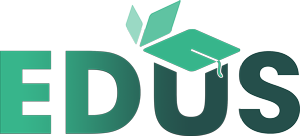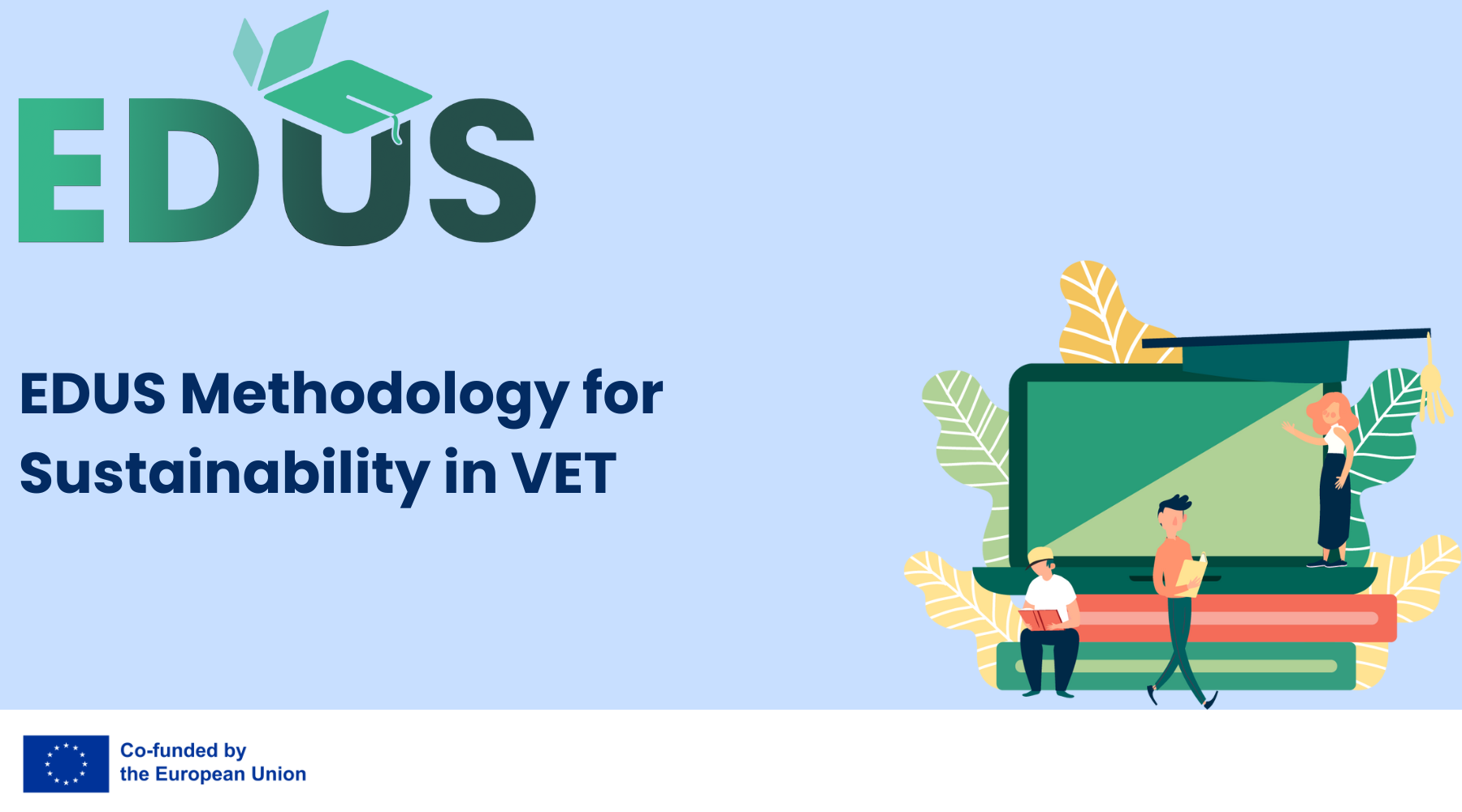
Educating for sustainability: A competence framework for vocational education and training.
02/27/2025 admin
Written by: Rikke Dorothea Huulgaard and Heidi Simone Kristensen, Aalborg University.
We are happy to share that Educating for sustainability: A competence framework for vocational education and training is finally here. The competence framework provides a detailed overview of sustainability competences to be integrated in VET programs. The framework is designed to teach about sustainable development through a problem-based learning approach that aspires to educate innovative and critical thinkers. EDUS provides VET trainers with competences and knowledge related to sustainable development and provides them with a set of educational tools through a designed training program. The goal is to make sustainable development and transition an integrated part and a priority in VET programs and by spreading awareness, EDUS will help build more sustainable and responsible citizens and workforce. When the VET students enter the labor market, sustainability competences enable them to be change agents and create sustainable solutions. The EDUS framework supports VET teachers in incorporating sustainability into their teaching practices by pinpointing competences that are important across various VET settings. It also outlines learning objectives for knowledge and skills at three different levels (basic, intermediate, and advanced), giving VET teachers the flexibility to customize the framework to suit their students.
It is important to bring sustainability into our educational system for the future generations to possess the needed competences to make continual change and be able to contribute to a more sustainable world. This entails giving the students the possibility to reflect, investigate, recognize and act in relation to the world they live in, and support them in being able to see themselves as part of the solution. It is in line with the UN Sustainable Development Goal 4 on Quality Education, target 4.7, which is: “By 2030, ensure that all learners acquire the knowledge and skills needed to promote sustainable development, including, among others, through education for sustainable development”. Through the EDUS methodology, this project helps reach this pivotal target from the 2030 Agenda by developing a competence framework (the EDUS framework), a training program and a toolkit.
What is a sustainability competence?
A sustainability competence empowers learners to effectively address environmental, social, and economic challenges, to take action that positively contributes to a sustainable development.
This definition focuses on developing sustainability knowledge, skills, and attitudes, which enables learners to think, plan and act for a sustainable future. According to the Council of the European Union in the Council Recommendations of May 2018 on key competences for lifelong learning, knowledge, skills, and attitudes are defined as:
- Knowledge is composed of the facts and figures, concepts, ideas and theories which are already established and support the understanding of a certain area or subject;
- Skills are defined as the ability and capacity to carry out processes and use the existing knowledge to achieve results;
- Attitudes describe the disposition and mind-sets to act or react to ideas, persons or situations.
- situations.
The Competence Framework
The EDUS framework was developed by the project consortium through a process of desk analysis, literature review and focus group interviews with stakeholders, such as sustainability and teaching experts relevant to the VET systems in Iceland, Slovenia, Spain, and Denmark.
The framework is built upon the 17 UN Sustainable Development Goals, the New European Bauhaus (NEB) and the GreenComp framework and thus, consists of three core sustainability dimensions (People, Profit, Planet), which are supported by three key enablers (Creativity, Connectivity, Technology). The three enablers are means to reach sustainability within each of the sustainability dimensions and are visualized by the three black lines in the EDUS framework illustrated in Figure 1.

Each sustainability dimension (Planet, People, Prosperity) of the EDUS framework is elaborated through two different competences to encompass the complexity of each sustainability dimension, see Figure 2. For each competence, learning goals are developed within skills and knowledge, while attitude learning goals are developed at an overall level, illustrated in Figure 2.

To further nuance the framework, three distinct competence levels (basic, intermediate and advanced) are defined for each competence to allow VET trainers and students to develop new competences over time and to adapt the framework to their specific VET program and existing knowledge base.
Self-assessment Grid
In addition to the competence framework, a self-assessment grid has been developed. It is to be filled out by the students before and after having completed sustainability training developed in the EDUS project, and the aim is to provide the teachers the possibility to assess the entry and exit level of their students and thereby be able to adjust the teaching to fit the students’ level. You can find the self-assessment grid in the framework document on p. 30.
Next Steps
Next in the EDUS project is to develop teaching materials and training methodologies to get those sustainability competences out there.







